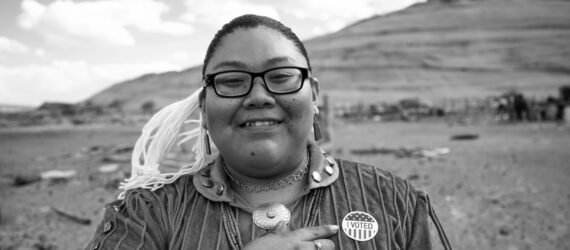This year, the world celebrates Earth Day on April 22. The theme is “investing in the planet.”
The Intergovernmental Panel on Climate Change (IPCC) Sixth Assessment Report (AR6) Synthesis Report: Climate Change 2023, released in March, names threats to food security posed by climate change. These include agricultural and ecological droughts, intense tropical cyclones, and reductions in Arctic Sea ice, snow cover, and permafrost.
Climate scientists warn that to avoid catastrophic consequences, the world must limit global warming to no more than 1.5 degrees C. (2.7 degrees F.) over preindustrial levels. The most vulnerable and under-resourced communities contribute least to climate change but suffer most from its impacts. These hardships include food insecurity and international debt.
Bread for the World emphasizes that climate change is one of the main causes of hunger. The leadership, commitment, and investment of the global community to prevent and mitigate the worst impacts of climate change is essential to ensure that all people are treated equitably and have opportunities to develop livelihoods that will support their families.
Just ahead of Earth Day, the World Bank Group and International Monetary Fund (IMF), both international financial institutions, held their Annual Spring Meetings, with more than 30 planned events related to climate finance, food security, and international debt relief. The World Bank, as part of one of the world’s largest public international financial institutions, is an important participant in ongoing efforts to respond to climate change, its impact on food security, and how these issues intersect with the international debt obligations of most vulnerable and under-resourced countries.
At these spring meetings, finance ministers and other policymakers from most countries around the world discussed financing needs and priorities at the local, regional, and global levels—initiatives that will promote global economic security and cooperation. The World Bank’s proposed Evolution Roadmap was the basis for many of these discussions.
The roadmap emphasizes the importance of responding to the impacts of climate change on global peace and prosperity. The World Bank recognizes that it must play a leadership role in shifting attention from traditional topics such as models of economic growth, trade negotiations, and balance of payments, to the impacts of climate change, food insecurity, fragility, debts owed by the most vulnerable and under-resourced countries, and the COVID-19 global pandemic.
The Evolution Roadmap includes discussion of issues that are also prominent in the recent IPCC report, such as how climate impacts such as floods, droughts, and locust invasions threaten the food security of hundreds of millions of people. The roadmap seeks to foster collaboration among the Bank’s country shareholders, clients, and partners to be able to do more on global public goods such as the environment.
One of Bread’s key points for the World Bank Group and IMF convenings, which are important marketplaces of ideas, is that a country’s international debt obligation must not increase hunger among its people. This is what happened in Sri Lanka in 2022. The government of Sri Lanka defaulted on its international debt. This created an economic crisis whose impacts included a 90 percent increase in food prices that left more than a quarter of the country’s 22 million people food insecure.
International financial institutions need to step in and take action to reduce hunger and other suffering among people in vulnerable and under-resourced countries with emerging economies. According to experts, outcomes like that of Sri Lanka may be inevitable in such economies under existing structures and policies. Improvements to the proposed roadmap through consultations and feedback from civil society are important for addressing debt relief to protect people from hunger and providing localized climate financing to protect the planet and abate climate driven hunger.
Abiola Afolayan is co-director of the Policy and Research Institute with Bread for the World.



